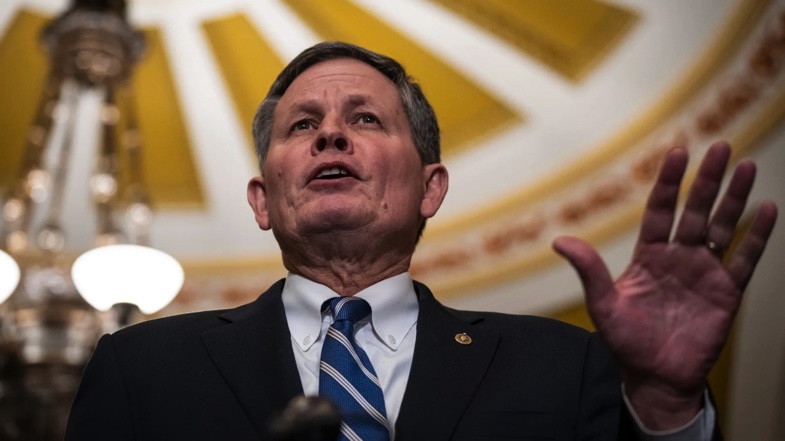
Mike Pence on Leadership and the Future of the Republican Party
Former US Vice President Mike Pence looks back on the events of January 6 2021, his final days in office with President Trump and his…
Thought Leader: Mike Pence

Senate Republicans are close to recruiting Tim Sheehy, a decorated military veteran and successful businessman with the resources to self-finance a campaign, to run against Sen. Jon Tester (D-Mont.) in 2024.
Why it matters: Sheehy, whom Republicans view as straight out of central casting, is being encouraged to run by National Republican Senatorial Committee Chair Steve Daines (R-Mont.), according to sources familiar with his efforts. The highly competitive race will help decide control of the Senate.
The big picture: Republicans, who need to net two seats to win back the majority, have their eye on three red-state races that Democrats are defending: Montana, West Virginia and Ohio.
Background: Sheehy is a former Navy SEAL and Purple Heart recipient who completed over 200 missions in Iraq, Afghanistan, South America and the United States Pacific Command. He is currently the CEO of Bridger Aerospace, a Montana-based provider of aerial firefighting and wildfire surveillance services.
What they’re saying: Montana Gov. Greg Gianforte also vouched for Sheehy as a strong Senate candidate.
Zoom in: Sheehy isn’t expected to make an announcement soon, and any formal kickoff — if he decided to run — would be in the coming months, according to Republican strategists familiar with his thinking.
Reality check: If Sheehy runs, he would face the likelihood of a competitive primary against Rep. Matt Rosendale (R-Mont.), a hard-right lawmaker allied with the anti-tax Club for Growth.
Between the lines: Former President Trump may end up playing a pivotal role in this contest. He’s been publicly feuding with the Club for Growth, which has long championed Rosendale.
The bottom line: Beyond recruitment, Daines’ biggest challenge is ensuring strong candidates can make it through contested primaries, at a time when GOP voters have preferred nominees at odds with their own leaders.
Mike Pence on Leadership and the Future of the Republican Party
Former US Vice President Mike Pence looks back on the events of January 6 2021, his final days in office with President Trump and his…
Thought Leader: Mike Pence
Marc Short on U.S. Investment in Critical Minerals
Why do critical minerals matter now? Marc Short explains how U.S. investment in critical minerals fits into a broader strategy around economic security, manufacturing, and…
Thought Leader: Marc Short
Marc Short on AI Policy and the Government’s Role in Chip Technology Investment
On CNBC, Marc Short breaks down the role of AI policy and how government investment is shaping the future of chip technology. A former Chief…
Thought Leader: Marc Short

